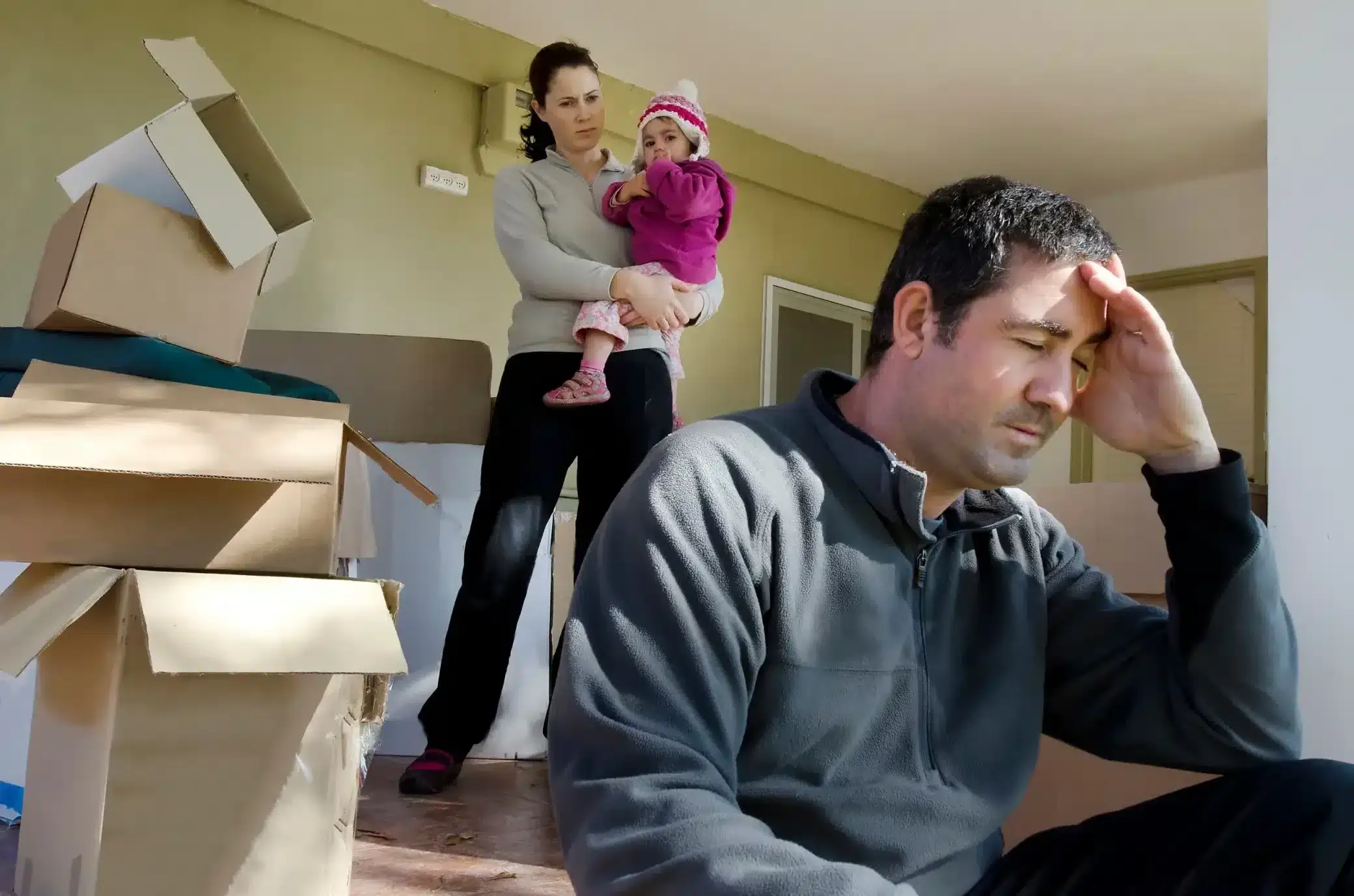Can I Modify My Child Custody Agreement if My Ex-Spouse Is Moving Out of Texas?
 When your ex-spouse plans to move out of Texas, it can create uncertainty in your current child custody agreement. This situation can be stressful, but it also offers a chance to review and change your custody arrangement to better fit your child’s needs.
When your ex-spouse plans to move out of Texas, it can create uncertainty in your current child custody agreement. This situation can be stressful, but it also offers a chance to review and change your custody arrangement to better fit your child’s needs.
At Farias Law Firm, PLLC, we understand Texas child custody laws well and can help you make these changes smoothly and effectively. Our family law attorneys focus on keeping your child’s best interests in mind while protecting your parental rights.
Don’t handle this situation by yourself. Our team is here to guide and support you in successfully changing your custody agreement. Call us now to set up a consultation and start working towards a positive outcome for you and your child.
Contact Farias Law Firm, PLLC today at 713-226-7999.
Understanding Texas Child Custody Laws
In Texas, “conservatorship” means the legal custody of a child, covering various rights and responsibilities. The law usually assumes that both parents will be joint managing conservators, meaning they share decision-making duties for their child’s upbringing.
Joint managing conservatorship grants both parents equal rights and responsibilities, meaning they both have a custodial role. This arrangement includes creating a parenting plan that outlines rights, duties, and decisions about the child’s living situation.
Under joint custody, both parents will have periods of possession and access (visitation) with the child. When a custodial parent decides to move out of state, Texas courts focus on the child’s best interests while considering parental rights. Any major changes to the child’s main residence must be carefully reviewed. The custodial parent must inform the other parent and the courts to adjust current arrangements.
These legal basics are key for handling child custody cases and court hearings. Knowing your rights and responsibilities, whether dealing with joint legal custody or primary custody, helps in making informed choices for your child’s well-being.
Parents’ Certain Basic Rights
In Texas, parents have certain basic rights with respect to their children. These rights include:
- The right to make decisions concerning the child’s upbringing, including decisions regarding education, healthcare, and religious training.
- The right to access and possess the child, which means the right to spend time with the child and to have physical custody of the child.
- The right to receive information from any other person who has access to information about the child, such as teachers, doctors, or counselors.
- The right to consent to the child’s marriage, enlistment in the armed forces, and medical and psychiatric treatment.
- The right to receive child support from the other parent, if applicable.
It is important to note that these rights can be limited or modified by court order if it is determined to be in the best interests of the child. Additionally, if the parents are not married, the father may need to establish paternity before he can exercise these rights.

Modifying My Custody Agreement
In Texas, a custodial parent must notify the other parent in writing at least 60 days before moving out of state, providing the new address and reasons for the move. This ensures transparency and allows time for necessary legal changes.
Changing a child’s primary residence depends on the current custody agreement. In joint managing conservatorship cases, both parents must negotiate and agree on the child’s residence.
Usually, consent is needed for an out-of-state move. If an agreement can’t be reached, the court may step in to ensure the child’s best interests are protected.
If one parent has sole managing conservatorship, they have the authority to change the child’s residence without needing permission from the other parent. However, if a primary parent plans to move out of state, they typically need the other parent’s consent or must ask the court for approval. Without consent or court approval, the other parent may seek a Temporary Restraining Order to prevent the move.
Skipping these steps can have serious legal consequences. Moving without permission can affect the current custody order and lead to legal issues. Knowing these requirements ensures you can take the necessary legal steps to change your custody agreement if your ex-spouse decides to move out of Texas.
Legal Process for Modifying a Custody Agreement
Modifying a custody agreement in Texas typically begins with filing a Petition to Modify the existing custody order in the court that issued the original decree. This petition must clearly outline the reasons for the requested changes, demonstrating a material and substantial change in circumstances since the original order was established.
Once the petition is filed, both parents may be required to attend a court hearing. During this hearing, each parent has the opportunity to present evidence and arguments supporting their position. The court will carefully evaluate all aspects, including the child’s physical and emotional needs, parental rights, and any potential impact on the parent-child relationship.
In some cases, mediation may be encouraged or required to help parents reach an agreement without the need for a contentious court battle. If parents can agree on modifications, the court will review the proposed changes to ensure they serve the child’s best interests before issuing a new custody order.
If You Have Joint Custody
In cases of joint managing conservatorship, both parents share equal rights and responsibilities regarding the child’s upbringing. If your ex-spouse plans to move out of Texas, you must both negotiate and agree on any changes to the custody arrangement. This includes decisions about the child’s primary residence and visitation schedules.
If you cannot reach an agreement, the court may intervene to determine what serves the child’s best interests. Filing a petition to modify the custody order with the court that issued the original divorce decree is a necessary step, and you may need to present evidence that supports your request for modification.
If You Have Sole Custody
If you have sole managing conservatorship, you hold the primary authority to make decisions about the child’s residence and daily life. However, if your ex-spouse is moving out of Texas, it may still impact visitation arrangements and require modifications to the custody order. You should notify the court and the other parent about the move to ensure that any changes are legally recognized and in the child’s best interests.
If Your Ex-Spouse Has Sole Custody
If your ex-spouse holds sole custody and plans to relocate out of Texas, they typically have the right to decide on the child’s residence. However, they are required to inform you and the court of their intention to move, providing details such as the new address and reasons for relocation.
You have the right to contest the move if it significantly impacts your visitation rights or the child’s well-being. In such cases, you may need to file a motion to modify the custody order, seeking court intervention to evaluate the relocation’s impact on the child and your parent-child relationship.
Securing Court Approval for Relocation
Getting court approval for relocation makes sure the move is in the child’s best interests. Texas courts focus on the child’s physical, emotional, and educational needs when reviewing relocation requests. The court looks at valid reasons for moving, like job opportunities or better living conditions.
Importantly, court approval is generally required for relocation regardless of the custody arrangements in place. This ensures that any move aligns with the child’s best interests and respects the rights of both parents involved in the custody agreement.
Relocation can impact visitation rights and the child’s bond with the non-moving parent. So, court permission or the other parent’s agreement is usually needed for a parent to move with a child. Moving out of state or beyond certain counties requires court approval to ensure the move benefits the child.
At Farias Law Firm, PLLC, our experienced Houston child custody attorneys ensure that your relocation plans comply with Texas child custody laws while safeguarding your parental rights. We present a compelling case to the court, highlighting the benefits of the move for your child and addressing any concerns about visitation and parental relationships.
Impact of Relocation on Child Support Orders
Moving out of state can significantly affect child support orders. Relocating parents must notify the Texas Child Support Division about their new address. This ensures that child support payments continue without interruption.
Child support obligations remain effective despite relocation. The non-custodial parent must continue to pay child support even if the custodial parent and child move to another state. Changes to child support can only occur through a court order, ensuring any changes are legally binding and in the child’s best interests.
Child and spousal support should ensure needs are met rather than maintaining the same standard of living. This principle ensures that the primary focus remains on the child’s well-being.
If relocation requires child support modification, parents must follow legal procedures to request these changes. This ensures your child’s financial support remains consistent and adequate, regardless of residence changes.

Consequences of Moving Without Court Approval
Unauthorized moves can result in legal penalties, changes to custody agreements, and possible contempt of court charges. Parents who move out of designated areas without consent risk losing custody rights and facing major legal issues.
Ignoring legal steps for moving may be seen as contempt of court, leading to more penalties. In some cases, the parent may have to return to the original location as ordered by the court.
Unauthorized moves can mess up visitation schedules, affecting the child’s relationship with the non-moving parent. Temporary restraining orders and criminal charges are possible outcomes of unauthorized relocation.
Negotiating a New Parenting Plan
Working out a new parenting plan can be helpful when facing relocation. Parents can agree on temporary changes to visitation or child custody arrangements to avoid court involvement. This approach provides flexibility and time to reach a more lasting agreement.
Mediation is a valuable tool for negotiating a new parenting plan, providing a structured environment for both parents to discuss and resolve issues amicably. Both parents should be ready to make compromises during mediation to ensure a balanced parenting plan. Developing a realistic, enforceable parenting plan is important, focusing on specific, practical clauses.
Detailing the parenting plan according to parental conflict levels helps prevent future disputes. Working out a new parenting plan requires patience, cooperation, and focus on the child’s best interests to create a workable solution.
At Farias Law Firm, PLLC, we prioritize negotiation and mediation as the first steps in resolving child custody disputes. Our experienced Houston custody lawyers aim to facilitate amicable agreements that serve the best interests of the child while respecting the rights of both parents.
However, if these efforts do not lead to a satisfactory resolution, we are fully prepared to take the case to court. Our commitment is to ensure that your parental rights are upheld and that the custody arrangement reflects the child’s best interests, even if it requires judicial intervention.
Help from a Houston Custody Lawyer at Farias Law Firm, PLLC
When you’re thinking about changing a child custody agreement to ensure your children remain with you in Texas, consulting with a family law attorney like those at Farias Law Firm, PLLC is essential. Our child custody attorneys provide valuable guidance through the legal process, especially when your ex-spouse is planning to move out of state.
Legal help is particularly important if the other parent disagrees with the proposed changes to keep the children in Texas. We help gather and present the necessary evidence to support your case, ensuring the changes are in the child’s best interests. Our custody lawyers focus on negotiating with the other parent to reach a favorable agreement whenever possible.
At Farias Law Firm, PLLC, we offer the knowledge you need for your child custody case. Our approach includes using negotiation and mediation first, but we’re prepared to go to court if necessary. This ensures your rights and your child’s well-being are protected throughout the process.
Handling child custody cases can be challenging, but with the right legal help from Farias Law Firm, PLLC, you can achieve a positive outcome. Our Houston child custody attorneys are known for their patience, creativity, and dedication, making us a reliable choice for handling your family law needs, especially when keeping your children in Texas is your priority.
Contact Us for Assistance with Child Custody Relocations and Modifications
If you’re facing challenges with modifying your child custody agreement, especially if your ex-spouse is moving out of Texas, don’t go through this process alone. Our Houston child custody lawyer is ready to provide the guidance and support you need to protect your rights and your child’s best interests. Call us now to schedule a consultation and take the first step towards resolving your custody case effectively.

